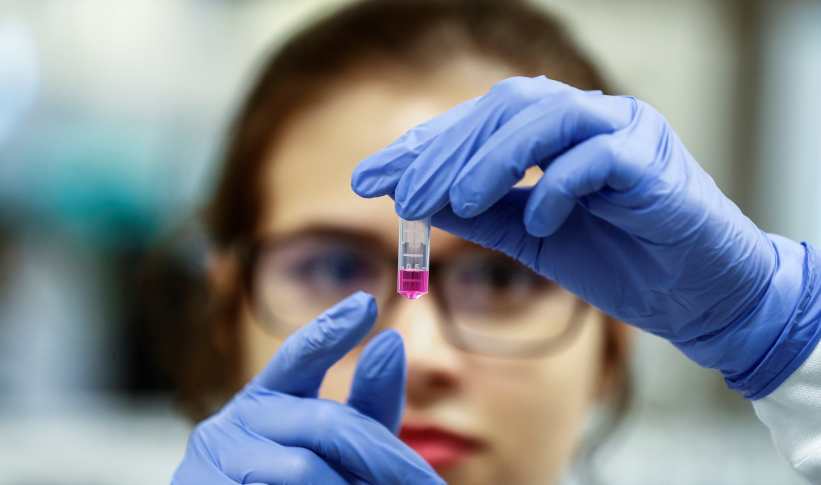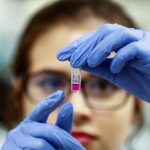Coronavirus vaccine from Pfizer and BioNTech shows positive results, report says

After a lot of bad news about the increase in number of coronavirus cases here in the U.S., we’re happy to share some positive news on the vaccine front. Back in April, pharmaceutical giant Pfizer announced its coronavirus vaccine could be ready for emergency use by Fail.
Now, in a paper released on MedRXiv today, the experimental Covid-19 vaccine being developed by the drug giant Pfizer and the biotech firm BioNTech reportedly improves immune responses in healthy patients. MedRXiv is a preprint server, meaning it has not yet been peer-reviewed or published in a journal.
According to the study documented in a 16-page paper, researchers randomly assigned 45 patients to get one of three doses of the vaccine or placebo. Twelve receive a 10 microgram dose, 12 a 30 μg dose, 12 a 100 μg dose, and nine a placebo. The 100 μg dose caused fevers in half of patients; a second dose was not given at that level.
Below is the abstract of the study.
In March 2020, the WHO declared a pandemic of coronavirus disease 2019 (COVID-19), due to severe acute respiratory syndrome coronavirus 2 (SARS-CoV-2). With >8.8 million cases and >450,000 deaths reported globally, a vaccine is urgently needed. We report the available safety, tolerability, and immunogenicity data from an ongoing placebo-controlled, observer-blinded dose escalation study among healthy adults, 18-55 years of age, randomized to receive 2 doses, separated by 21 days, of 10 µg, 30 µg, or 100 µg of BNT162b1, a lipid nanoparticle-formulated, nucleoside-modified, mRNA vaccine that encodes trimerized SARS-CoV-2 spike glycoprotein RBD. Local reactions and systemic events were dose-dependent, generally mild to moderate, and transient. RBD-binding IgG concentrations and SARS-CoV-2 neutralizing titers in sera increased with dose level and after a second dose. Geometric mean neutralizing titers reached 1.8- to 2.8-fold that of a panel of COVID-19 convalescent human sera. These results support further evaluation of this mRNA vaccine candidate.
In earlier report, Pfizer research-and-development chief Mikael Dolsten said the potential treatment has so far shown positive signs in preclinical work. The drug seeks to “counter the expansion of the virus,” Dolsten said. Pfizer had initially planned to enter clinical trials for a COVID-19 drug by the end of the year, according to Dolsten. Now, it hopes to start those trials in the third quarter, meaning “just a few months from today,” he said.
To date, there are at least 14 Covid-19 vaccines currently in human trials, according to the Milken Institute, including entrants from Oxford University, Moderna, Inovio, CanSino, AstraZeneca, and Moderna. Overall, a total of 178 vaccines are in various stages of development.
Last month, Moderna also reported successful trials of its mRNA vaccine against coronavirus as the pharmacecutical giant finalizes plans for final phase 3 trials. Just like Moderna vaccine, the Pfizer/BioNTech vaccine is also based on a technology called messenger RNA, which uses a key genetic messenger found in cells to create protein that the immune system then learns to attack.
About mRNA-1273
mRNA-1273 is an mRNA vaccine against SARS-CoV-2 encoding for a prefusion stabilized form of the Spike (S) protein, which was selected by Moderna in collaboration with investigators from Vaccine Research Center (VRC) at the National Institute of Allergy and Infectious Diseases (NIAID), a part of the NIH. The first clinical batch, which was funded by the Coalition for Epidemic Preparedness Innovations, was completed on February 7, 2020 and underwent analytical testing; it was shipped to NIH on February 24, 42 days from sequence selection. The first participant in the NIAID-led Phase 1 study of mRNA-1273 was dosed on March 16, 63 days from sequence selection to Phase 1 study dosing.




